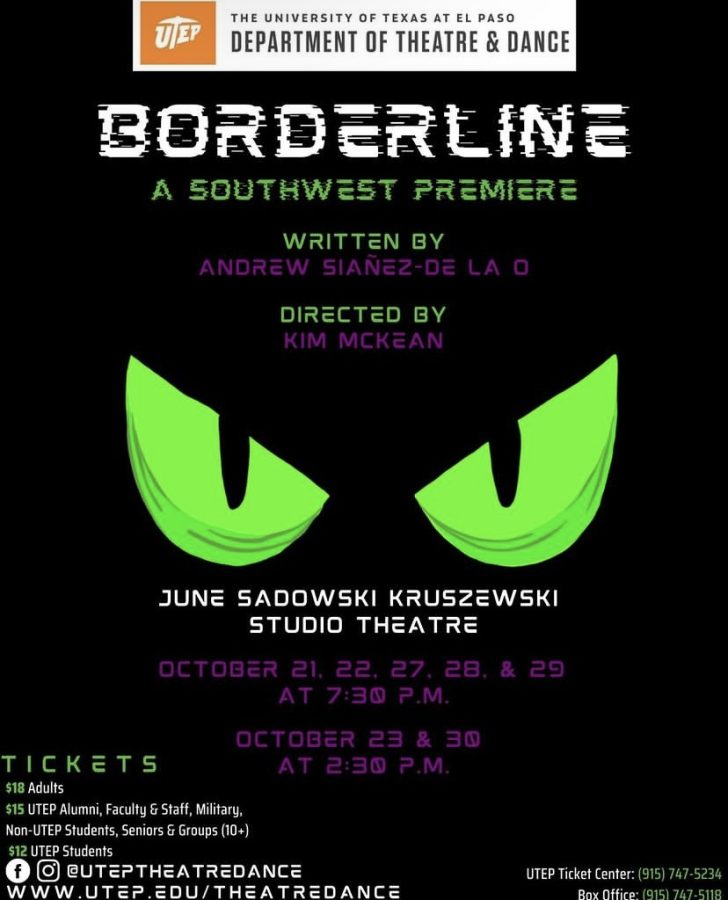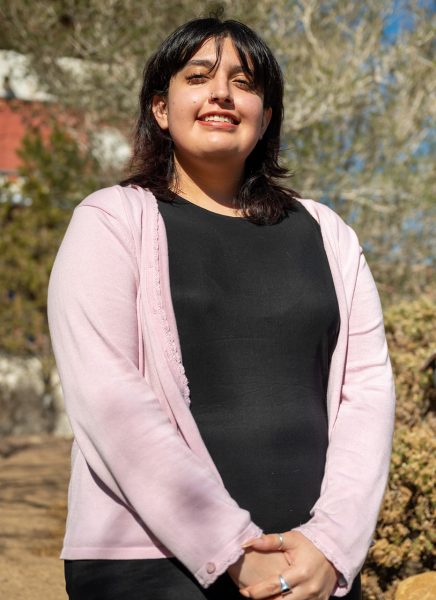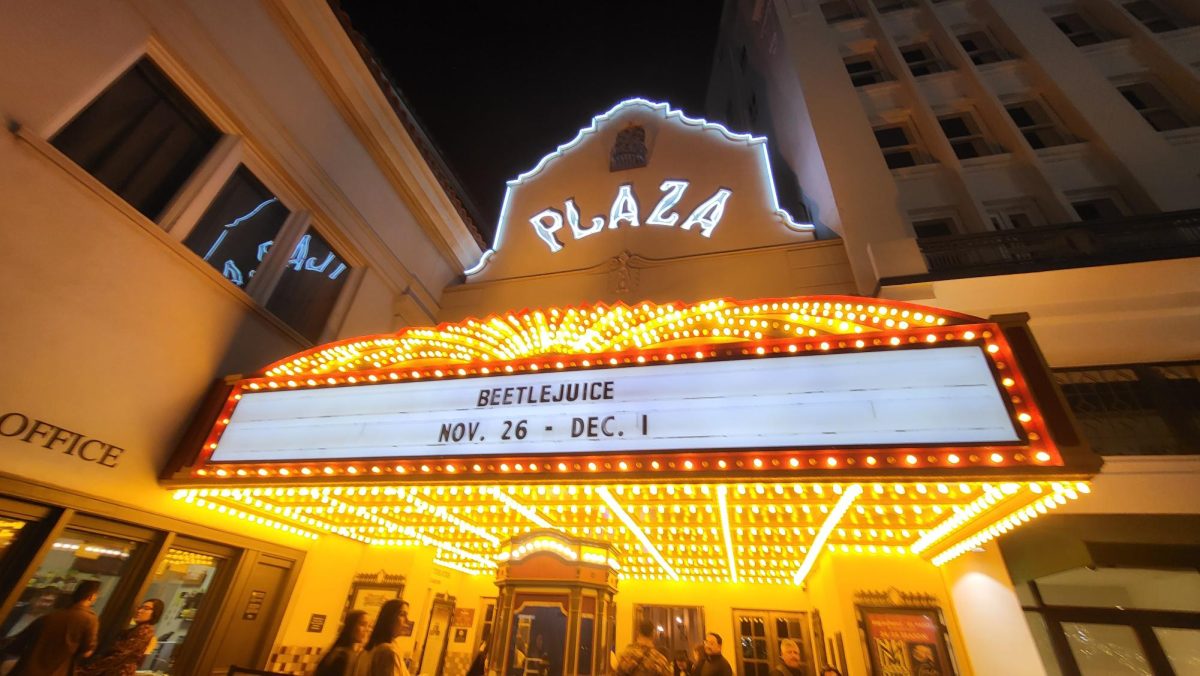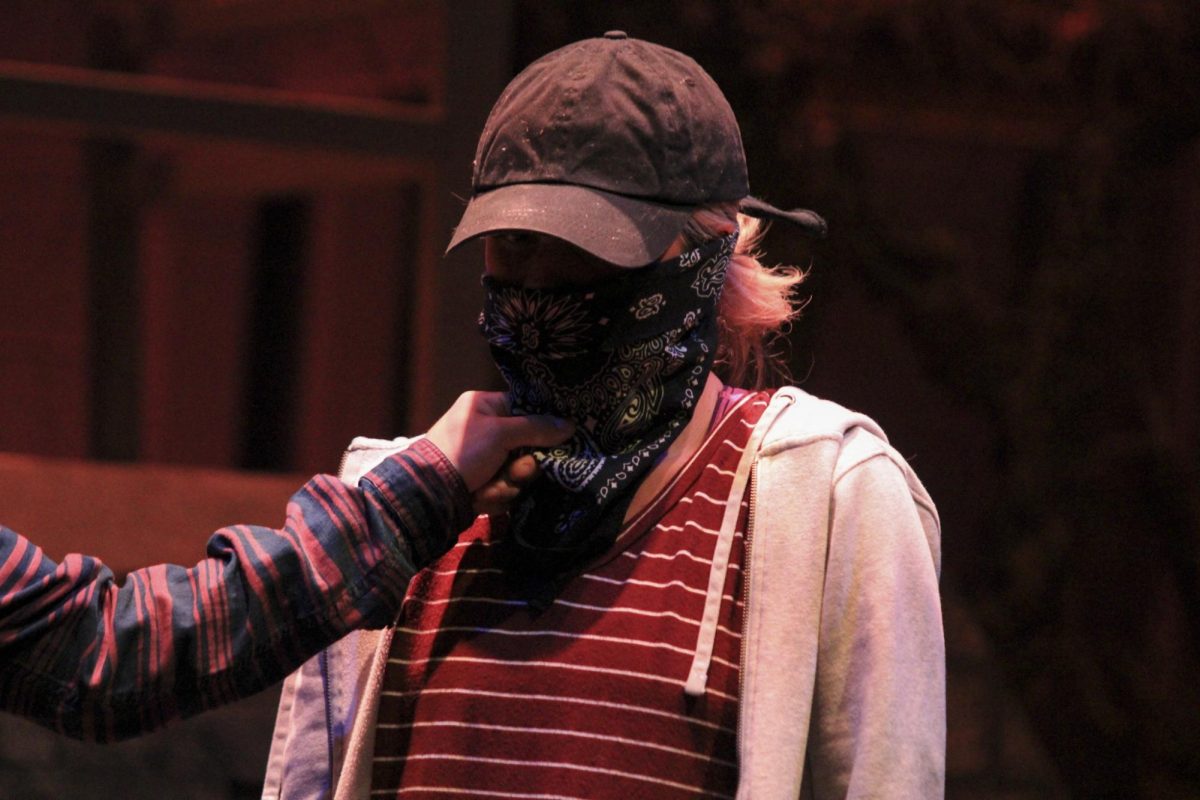Just before his work hits UTEP theater, Andrew Siañez-De La O hosted a free playwriting workshop for those who are passionate about learning and producing work in that field. The class was held Oct. 21 in the Fox Fine Arts Center and was the perfect space for UTEP creatives to get together, collaborate and ask questions.
While the meeting was intended to help playwriters progress in their work or connect them with different resources, Siañez-De La O managed to touch on a wide variety of topics that could help any writer grow in their projects. He first focused on the importance of bringing the stories you want to see into existence where nobody else may be doing them.
“I was writing that play because I thought, ‘No one else is going to write it, no one else is going to do it,’” Siañez-De La O said. “’I need to do it, and that’s how I’m going to make my mark. That’s how I’m going to take up space.’”
He also mentioned that there is an overarching expectation that writers of color face when it comes to the literature or media they want to produce, so making room for yourself in those spaces is incredibly important.
“I realized kind of quickly that I wasn’t super interested in writing that play. I was writing it because I felt like that was the produce-able thing, that was the thing people are interested in,” Siañez-De La O said. “That is the thing people want to see from brown writers. (Writing) about dystopias, about diasporas, that sort of lived experience.”
Following this, he broke down some ways for writers to take meaningful stories about race, gender, class and more, and shape them in diverse ways. Most notably he recommended a piece of advice that was passed on to him in which “living room plays,” which encompass all topics listed previously, were placed in unfamiliar settings to help challenge audiences.
“Tell that play through sci-fi, tell that play through fantasy,” Siañez-De La O said. “The idea behind that is when you get a white audience into a theater by a brown playwright, they’re going to expect a race play. They’re going to expect the play about class dynamics and diasporas.”
When the themes are shifted to a different genre with a more fantastical setting, an audience that might initially tune out these lessons may start to view it more critically and with an open mind. Siañez-De La O’s advice followed these outlines where traditional playwriting can be reworked through various lenses while keeping the heart of the stories that want to be told.
He also gave attendees a rundown of a few places across the U.S. where their work would best be received and interpreted by other people in the field. From having access to actors to teachers, the resource list of theater companies was perfect for students who ever find their plays traveling with them outside of El Paso.
He listed a few places like the Echo Theater Company in Los Angeles. In the Boston area, he recommended places like Company One, Fresh Ink Theatre and Huntington Theater. For a city like New York, he also listed Pipeline Theatre Company.
Siañez-De La O gave students with questions about acting, playwriting and opportunities plenty of resources and really dissected their curiosity in a very thoughtful way. He put a lot of effort and detail into his responses, which made for a very productive workshop.
In case students would like to check out his work and see all his suggestions applied, Siañez-De La O’s play “Borderline” will be showing and available for everyone to see at 7:30 p.m. Oct. 21, 22, 27, 28 and 29 at the June Sadowski Kruszewski Studio Theatre.
It will be showing at 2:30 p.m. Oct. 23 and 30 at the same place. Tickets are available for purchase at the UTEP box office or ticketmaster.com
Meagan Garcia is the arts & culture editor and may be reached at [email protected].












